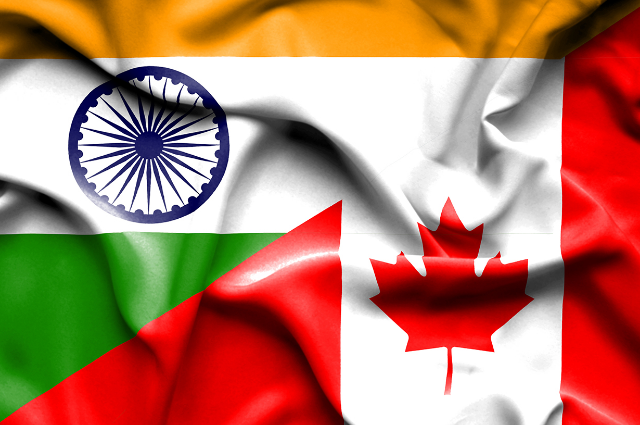
It was not merely Nijjar's past that raised eyebrows; it was his inexplicable presence on Canadian soil that stoked the embers of controversy. Canada, renowned for its commitment to human rights and democratic principles, found itself in a diplomatic tightrope act as Nijjar made his home in British Columbia.
His presence triggered questions about how a nation with a firm stance on terrorism could shelter an individual accused of grave offenses.
HARDEEP SINGH NIJJAR'S KILLING
The shadowy tale of Hardeep Singh Nijjar looms large.
This enigmatic figure's death serves as the epicenter of a complex and multifaceted diplomatic conundrum between the nations of Canada and India. His killing is not just a gruesome end but a catalyst for a chain reaction of events, implicating governments, courts, and human rights organizations.
At the heart of this tumultuous narrative stands Hardeep Singh Nijjar, a man whose life is shrouded in secrecy. Nijjar, a Canadian resident, was no ordinary citizen; he bore the heavy accusation of having ties to militant activities in India. This alone sent ripples through the diplomatic waters.
His death, though tragic, cannot be viewed in isolation. The significance of Nijjar's demise reverberates through the murky corridors of international politics and justice. As accusations of involvement in extremist activities swirled around Nijjar, India sought his extradition, alleging his complicity in acts of terrorism. A seemingly straightforward extradition request quickly snowballed into a maelstrom of controversy, exposing the intricacies of bilateral relations and human rights concerns.
The case of Hardeep Singh Nijjar represents a juncture where accusations meet jurisdiction, and international diplomacy is put to the test. It forces us to ponder questions of national sovereignty, human rights, and the ever-elusive balance between justice and diplomacy.
In the theater of international relations, the killing of Hardeep Singh Nijjar emerges as a pivotal scene that will continue to shape the narrative of Canada-India relations and extradition debates for years to come.
CANADA'S RESPONSE
- CANADA'S RESPONSE TO INDIA'S REQUEST FOR EXTRADITION.
- THE LEGAL AND DIPLOMATIC CONSIDERATIONS THAT INFLUENCED CANADA'S STANCE

Diplomatic Tightrope Walk
Canada, known for its respect for human rights and a meticulous legal process, found itself teetering on a diplomatic tightrope. The request for Nijjar's extradition, pushed aggressively by Indian authorities, demanded a nuanced response.
Ottawa's diplomats acknowledged the request but refrained from immediate action, striking a careful balance to address legal and political concerns.
Legal Considerations
Behind the scenes, Canada's response was heavily influenced by its adherence to legal principles. Extradition requests hinge on the presence of a valid treaty, and in this case, both countries indeed had an extradition treaty in place. The bedrock of Canadian law was tested, with the country's legal system meticulously reviewing the evidence presented by Indian authorities.
With an unwavering commitment to the rule of law, Canadian officials meticulously scrutinized the request, ensuring that Nijjar's rights would be respected throughout the process. Legal experts examined the evidence and assessed whether the extradition request met the rigorous standards set by Canadian law.
Human Rights and Diplomacy
Canada's response was also shaped by its steadfast commitment to human rights. Fears of potential human rights abuses in India, which could jeopardize Nijjar's safety, cast a long shadow over the proceedings. Diplomats, in consultation with human rights organizations, weighed these concerns carefully.
Diplomacy played a pivotal role, as Canada engaged in discreet discussions with India, seeking assurances that Nijjar's rights would be safeguarded.
The delicate negotiations, often hidden from the public eye, aimed to strike a balance between Canada's legal obligations and its commitment to protecting the human rights of all individuals within its borders.
Bilateral Relations at Stake
The matter didn't unfold in a vacuum. Bilateral relations between the two countries were at stake, adding another layer of complexity to Canada's response. The response had to be measured, as a misstep could have far-reaching consequences for trade, cooperation, and mutual interests.
Canada's response to India's extradition request for Hardeep Singh Nijjar wasn't merely a legal process; it was a tightrope act balancing the scales of justice with the demands of diplomacy. In this high-stakes diplomatic dance, Canada showcased its unwavering commitment to the rule of law and human rights, navigating the treacherous waters of international relations with the grace of a seasoned diplomat.
DIPLOMATIC TENSIONS
- THE DIPLOMATIC TENSIONS THAT AROSE BETWEEN CANADA AND INDIA AS A RESULT OF THIS MATTER.
- PUBLIC STATEMENTS OR ACTIONS BY BOTH COUNTRIES THAT ESCALATED THE SITUATION.
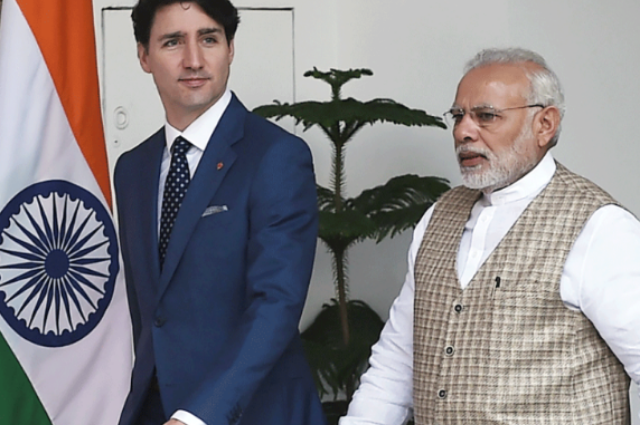
India, keen to bring Nijjar to justice, lodged a fervent request for his extradition, which set the diplomatic wheels in motion.
The embers of this diplomatic conflagration were stoked when Canada's response to India's extradition plea was not one of compliance but rather one that invoked complex legal procedures and deliberations.
In a world where diplomatic decorum is often defined by nuanced exchanges, the reaction from the Great White North struck a discordant note.
Verbal Volleys and Political Gambits
Diplomatic tensions swiftly rose to the surface as both countries engaged in a series of public exchanges and actions that fanned the flames of the already smoldering dispute. India, vehement in its pursuit of Nijjar, issued stern statements, highlighting the need for his return to face the Indian legal system.
On the flip side, Canada, while upholding its commitment to legal due process, was not without its own diplomatic maneuvers. The decision to prolong Nijjar's extradition proceedings was viewed by some as a calculated political move, a delicate balancing act to appease domestic constituents while maintaining international relations.
A Web of Intrigue and Rhetoric
As the diplomatic dance continued, both nations leveraged their arsenal of rhetoric, each firing their own set of arguments and counterarguments across the bow. Accusations, counter-accusations, and vehement rebuttals filled the diplomatic lexicon. The matter reached a crescendo with high-profile public statements that played out in full view of the global audience, magnifying the stakes.
The undercurrents of this diplomatic standoff were further complicated by the shadows of human rights concerns. Canada, ever vigilant about its human rights obligations, found itself grappling with the specter of potential abuses in India, adding yet another layer of complexity to the matter.
INTERNATIONAL RELEVANCE
- THE BROADER INTERNATIONAL IMPLICATIONS OF THIS CASE, ESPECIALLY IN THE CONTEXT OF EXTRADITION AND COUNTERTERRORISM EFFORTS
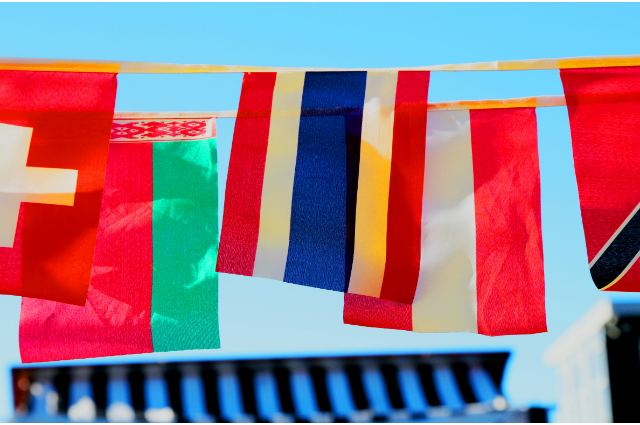
Photo by Nareeta Martin on Unsplash
Hardeep Singh Nijjar's killing has rumbled with international repercussions that reverberate far beyond the borders of Canada and India. As the dust settles and tensions simmer, it's essential to spotlight the captivating international relevance of this matter, particularly within the context of extradition and counterterrorism endeavors.
Picture a puzzle where each piece is a nation's commitment to fighting terrorism, sharing intelligence, and maintaining the delicate balance between national sovereignty and international cooperation. In this intricate puzzle, the Nijjar case is akin to a pivotal piece, affecting not only the immediate players but the whole board.
First and foremost, the Nijjar affair underscores the intricate web of extradition treaties that bind countries together. These treaties, often hidden in the dusty archives of diplomacy, gain renewed attention when high-profile cases like this surface. It prompts nations to reevaluate their commitments and responsibilities in ensuring that those accused of terrorism are held accountable on the global stage.
In the counterterrorism realm, where alliances and partnerships are paramount, the Nijjar saga raises questions about the delicate dance of trust and suspicion.
How does one nation's handling of a potential terrorist suspect impact its standing among allies?
International intelligence-sharing relies on mutual trust, and the way countries handle cases like Nijjar's can be a litmus test for this trust.
The case also spotlights the legal intricacies and moral quandaries associated with extradition. On one hand, it's about respecting human rights and ensuring a fair trial. On the other, it's about preventing potential threats to global security.
The Nijjar case reminds the world that extradition isn't just a matter of transferring individuals; it's a matter of transferring principles, beliefs, and, sometimes, fears.
This international relevance transcends the immediate players. It nudges other nations to assess their own extradition processes, counterterrorism strategies, and the extent to which they are willing to engage with their counterparts in the global fight against terrorism.
So, while Hardeep Singh Nijjar's name may not be a household one across the globe, his case serves as a poignant reminder that the intricate world of international politics and security is a colossal jigsaw puzzle. Each piece, no matter how obscure or discreet, can disrupt or enhance the global picture. The Nijjar case, in all its complexity, speaks to the heart of the global struggle against terrorism, extradition dynamics, and the eternal pursuit of a safer world.
HUMAN RIGHTS CONCERNS
- HUMAN RIGHTS CONCERNS RAISED BY NIJJAR'S CASE.
- HOW CANADA BALANCED ITS OBLIGATIONS UNDER INTERNATIONAL LAW WITH CONCERNS ABOUT POTENTIAL HUMAN RIGHTS ABUSES IN INDIA.
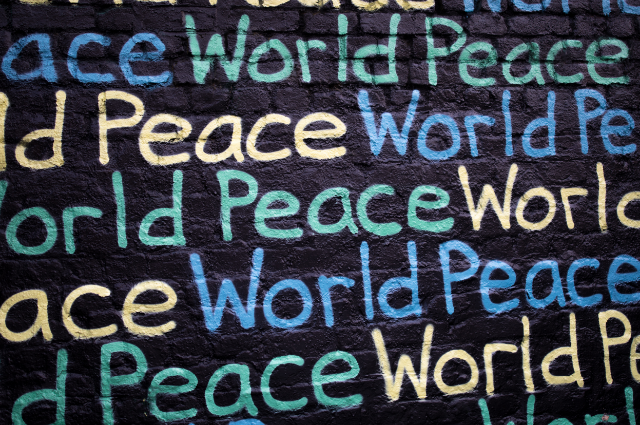
In the tumultuous saga surrounding the killing of Hardeep Singh Nijjar, Canada has found itself walking a tightrope, a high-stakes juggling act between its obligations under international law and the chilling echoes of potential human rights abuses resonating from India.
The allegations against Nijjar, an individual suspected of ties to militant activities, prompted India to request his extradition. However, amidst this intricate dance between two nations, Canada grappled with the specter of human rights concerns. The very extradition that India sought raised alarm bells over the treatment Nijjar might face upon returning to his homeland.
Canada, known for its steadfast commitment to human rights, was faced with a dilemma.
- On one hand, it had to uphold the principles of international law, which call for extradition in cases of alleged criminal activity.
- On the other, it had to address the genuine apprehensions that Nijjar might be subjected to torture, unfair trials, or other violations of his human rights upon landing in India.
The nation found itself at a crossroads where the path to justice for one could potentially lead to injustice for another. This tug-of-war over Nijjar's fate exemplified the intricate nature of international relations, where the respect for human rights sometimes collides with the obligations imposed by legal treaties.
MEDIA COVERAGE
- THE MEDIA COVERAGE AND PUBLIC PERCEPTION OF THE CASE IN BOTH COUNTRIES.
- HOW MEDIA NARRATIVES MAY HAVE INFLUENCED PUBLIC OPINION AND GOVERNMENT DECISIONS.

The media, as it often does, played an instrumental role in sculpting the public perception of the Nijjar case in both Canada and India. In an era of 24/7 news cycles and instantaneous information dissemination, the influence of media narratives cannot be overstated.
Canadian and Indian media outlets scrutinized every twist and turn of the Nijjar affair, scrutinizing the legal intricacies, diplomatic wrangling, and, above all, the underlying human rights concerns.
In Canada, where the case had garnered significant attention, media reports highlighted the fine line the government had to tread, balancing the demand for justice with the commitment to human rights.
In India, the media's focus was no less intense. While some outlets saw Nijjar as a fugitive, others portrayed him as a victim of political persecution, stoking emotions and raising questions about the extradition request. The media narratives had a direct impact on public opinion and, consequently, the government's approach to the matter.
RESOLUTION OR ONGOING DISPUTE?
- THE CURRENT STATUS OF THE MATTER. HAS IT BEEN RESOLVED, OR IS IT AN ONGOING DISPUTE?
- RECENT DEVELOPMENTS OR NEGOTIATIONS BETWEEN THE TWO COUNTRIES..."
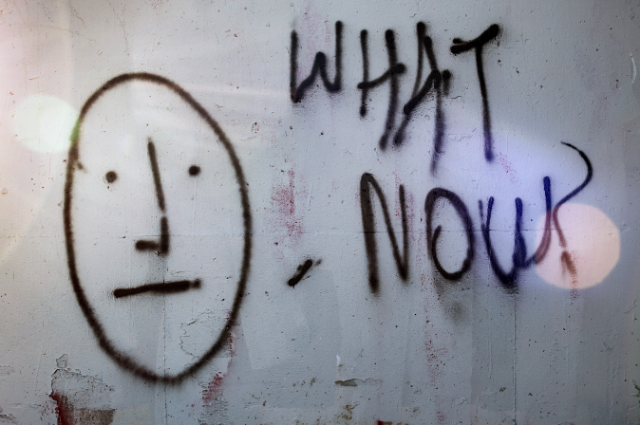
As of the latest developments, the matter between Canada and India remains unresolved, suspended in a state of ambiguity.
The two nations have engaged in negotiations and discussions, attempting to reconcile their legal obligations and human rights concerns. The question of Nijjar's fate still looms large, casting a long shadow over bilateral relations.
The matter stands as a testament to the intricacies of international diplomacy, where justice, diplomacy, and human rights intersect. Whether it will culminate in extradition, a diplomatic resolution, or an ongoing dispute is a narrative that continues to unfold in real-time, echoing the complexities of international affairs.
In a world where principles and pragmatism clash, the Nijjar case serves as a poignant reminder of the multifaceted nature of global affairs, where nations must navigate treacherous waters while holding fast to their commitment to justice and human rights.
Recent Action:
Canada has orchestrated a diplomatic maneuver of strategic proportions, redirecting its visa and consular services with calculated precision. The vivid tapestry of services that were once offered in the vibrant Indian cities of Chandigarh, Mumbai, and Bengaluru has now been meticulously woven into a single thread, leading directly to the Canadian High Commission in the capital, New Delhi.
This masterstroke comes in the wake of a resounding decision to withdraw 41 diplomats from India, effectively extinguishing the diplomatic immunity that had hitherto cloaked them. These seismic developments are the turbulent aftermath of a bitter diplomatic feud that erupted like a tempest between these two nations, ignited by none other than the audacious words of Prime Minister Justin Trudeau.
Trudeau's accusation, delivered with the weight of a geopolitical thunderclap, insinuated India's complicity in the sinister assassination of a Khalistani separatist on Canadian soil earlier this year.
The implications of these audacious assertions continue to reverberate in the diplomatic echelons of these two nations, casting a shadow that stretches far beyond their respective borders.
CONCLUSION
As the sun sets on the diplomatic tussle surrounding Hardeep Singh Nijjar, the quest for justice and the complexities of international relations continue to intersect in a gripping narrative that highlights the importance of addressing concerns on both sides of this intricate matter.
